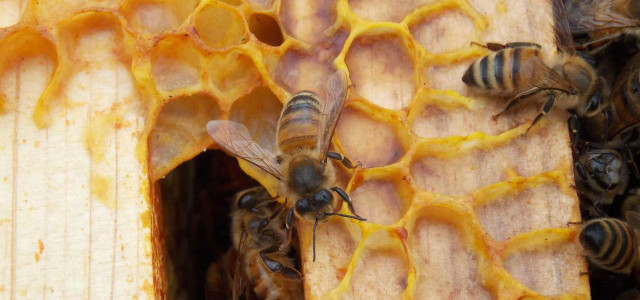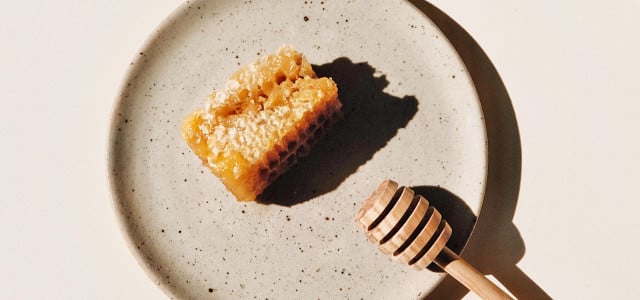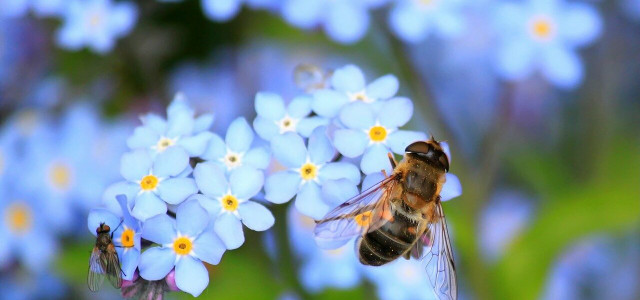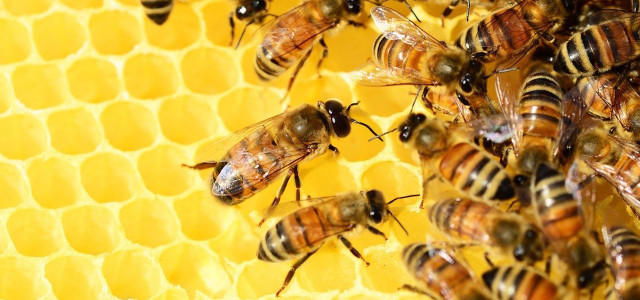You may enjoy honey in tea, or beeswax in lip balm, but what about propolis? Let's see if the bee propolis benefits are really worth the buzz.
Although you may be familiar with honey, beeswax, or royal jelly, bee propolis is a more obscure bee product that humans use. Bee propolis is a sticky resinous substance that bees create by mixing foraged plant resins, beeswax, and their own saliva. While the primary purpose of this “bee glue” is to seal gaps in the beehive, some other bee propolis benefits include insulating the hive, minimizing water loss, preventing pathogens from entering, defending from parasites, and preventing mold or decomposition within the hive. Though bees only make small amounts of propolis, it holds a crucial role for the health of a hive.
Bee Propolis Benefits
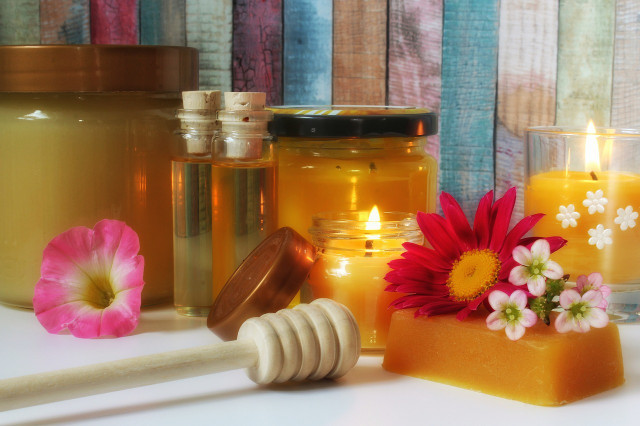


(Foto: CC0 / Pixabay / Lolame)
Bee propolis has been used since ancient times to treat a wide variety of medical conditions and promote general health. The primary bee propolis benefits derive from the high concentration of polyphenols, which are powerful antioxidants. Here are some health benefits propolis can provide:
- Bee propolis mixtures can accelerate wound healing, often penetrating deep into a wound rather than merely healing the surface.
- Propolis has antibacterial, antifungal, and anti-inflammatory properties.
- It can promote oral health, including wound healing, periodontitis, and healthier saliva.
- Bee propolis benefits the immune system and can help fight against bacterial infections.
- Propolis is effective against both genital and oral herpes (cold sores), reducing the amount of virus, healing existing sores, and helping prevent outbreaks.
- It can help fight cancer by reducing cancer cell multiplication and shrinking tumors.
In addition to the myriad health benefits, purchasing bee propolis can support beekeepers which can help boost threatened honey bee populations.
Some Drawbacks to Bee Propolis
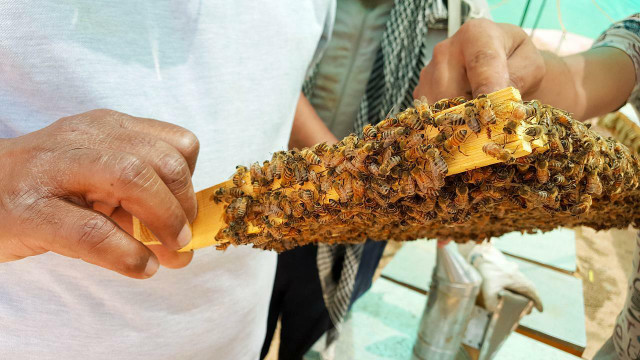


(Foto: CC0 / Pixabay / dmohanna)
Although the bee propolis benefits seem to make this a miracle product, there are a few risks and drawbacks to be aware of:
- Bee propolis can cause allergic reactions, particularly to those who are allergic to bee stings, honey, tree resin, or even pollen (since this often becomes a component of propolis). These reactions often take the form of inflammation or rashes when used on the skin or as swelling or ulcers when used as lozenges.
Additionally there is a question of sustainability with harvesting bee propolis: even commercial propolis harvesting must be done small scale since bees only produce a small amount. Excess propolis harvesting means that bees must focus on replacing it rather than producing honey for food. There are other complications as well:
- Bees must visit flowers to produce honey, making propolis harvesting somewhat less ecologically beneficial because bees must focus on collecting tree resin rather than pollinating.
- Propolis plugs up a hive and prevents pathogens, so a large propolis harvest means that the hive will be more susceptible to the disease and the elements until more propolis is produced.
- Bees always produce an excess of propolis which beekeepers must break apart to open the hive and access honey. This is the most sustainable method of propolis harvesting. Larger scale harvesting involves “propolis traps” which are full of tiny gaps which bees instinctively fill instead of harvesting honey.
The Verdict on Bee Propolis
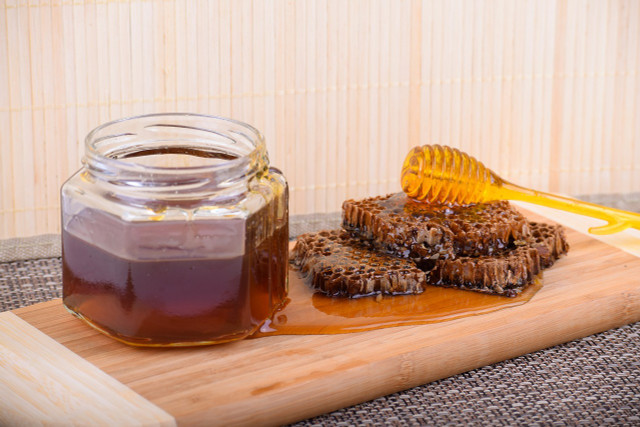


(Foto: CC0 / Pixabay / ExplorerBob)
Given the multiple bee propolis benefits, there is little harm in trying this bee product while supporting local and sustainable beekeeping in the process. Here are some considerations for purchasing propolis:
- Contact your physician first if you are allergic to bee products, bee stings, or pollen as propolis may trigger this.
- Most of the research into bee propolis benefits focuses on topical propolis in the form of creams or lozenges to promote skin or oral health. The benefits of supplements is less established.
- Since propolis research is still new, there is no FDA approved dosage of propolis and different brands use different concentrations.
- Look for local suppliers so you can learn more about their practices. Smaller beekeepers tend to be more concerned with the welfare of their bees.
Read more:
- Bees Need Water – Help Them out with a DIY Bee Waterer
- Are Bumble Bees Dangerous? Facts & Safety Tips
- Figs Are Not Vegan. Here’s Why
Do you like this post?






